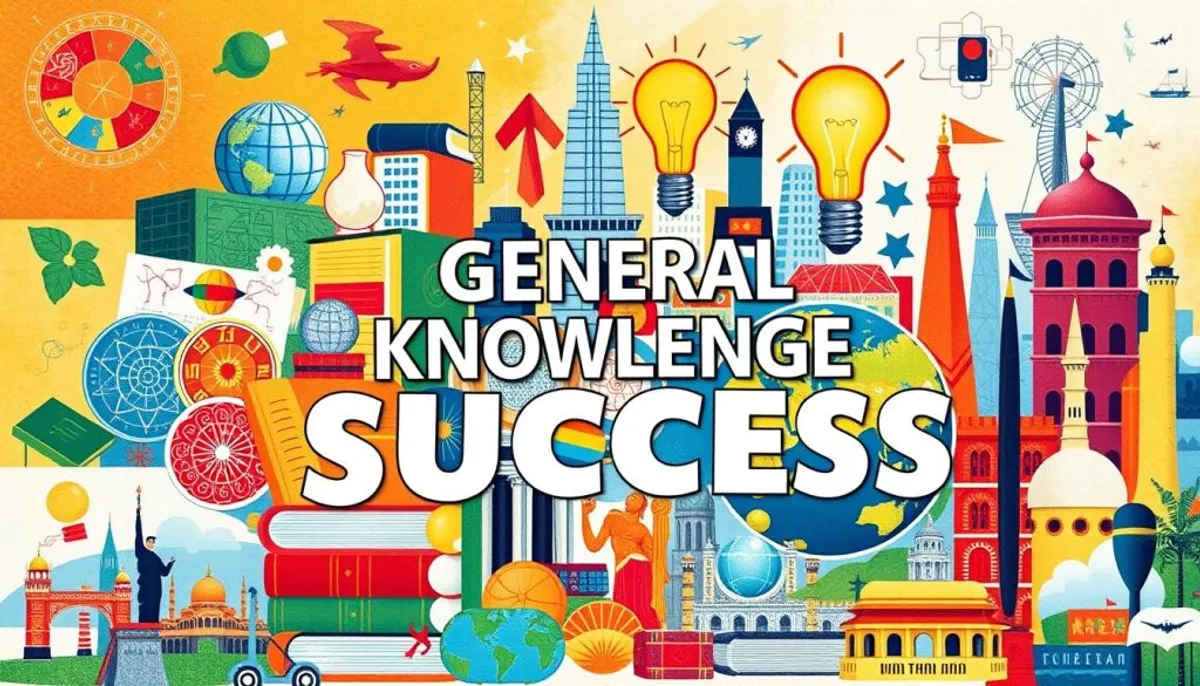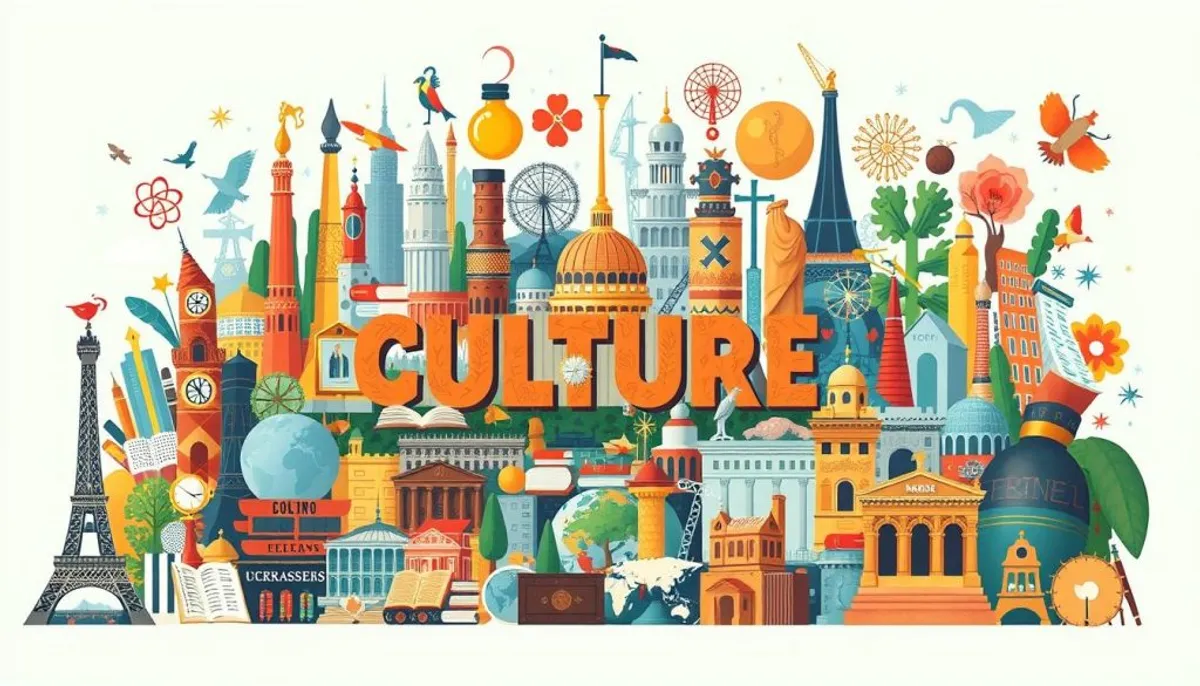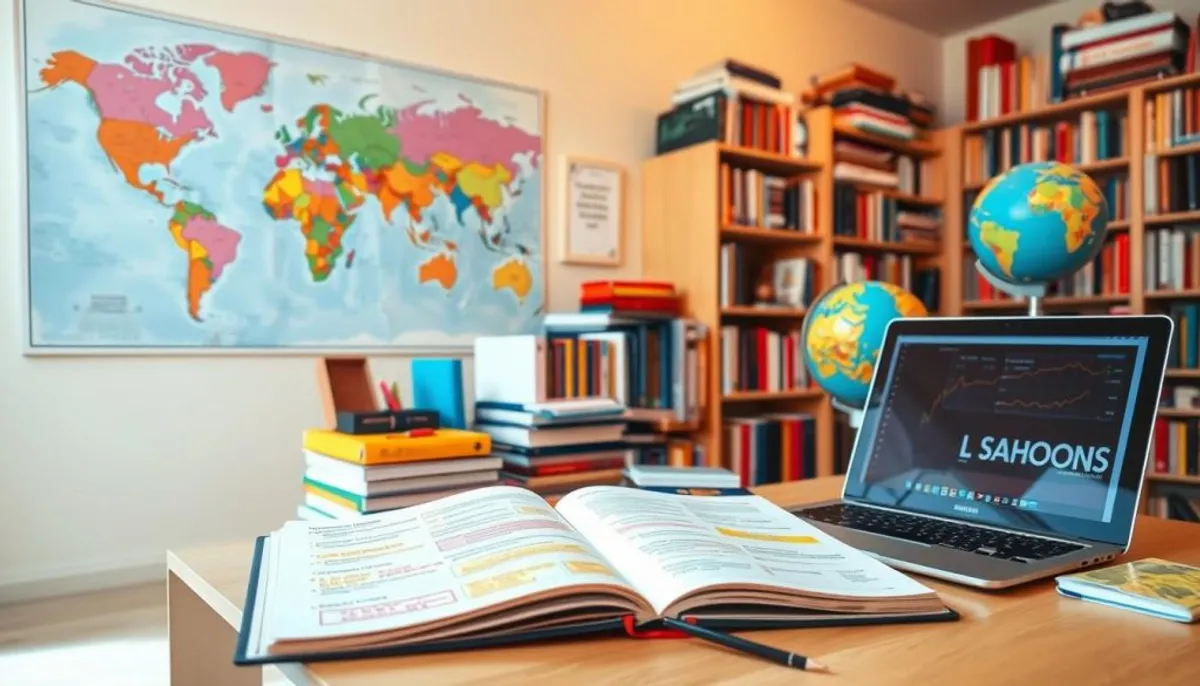Welcome to our comprehensive guide on succeeding in general knowledge. Whether you are preparing for a civil service exam, a HEC preparatory program, or a BTS, this guide will help you master the essential knowledge needed to excel, especially during the general knowledge exam. It is designed to provide you with the necessary tools for your success.
General knowledge is a valuable asset in many professional fields. It assesses your open-mindedness, critical thinking, and analytical skills. Our guide offers effective learning methods to enrich your knowledge. These methods are designed to help you develop a deep understanding of various fields.

To assist you in your preparation, we have gathered 5,000 multiple-choice questions on 60 different themes. You can start with a positioning test to assess your initial level. The topics covered include History, Geopolitics, Economics, Law, Sciences, Arts, and many other essential areas.
Our guide will support you in organizing your revision time, mastering memorization techniques, and the methodology for written exams. Whether for a document synthesis, a dissertation, or an oral exam, you will find here the keys to succeed in your general knowledge. Follow our guide to optimize your preparation and achieve your goals.
The Fundamentals of General Knowledge
General knowledge is a vast and enriching field, covering many aspects of our society. It is essential for our personal and professional development.
Definition and Importance of General Knowledge
General knowledge encompasses all the knowledge acquired in various fields. It reflects our ability to understand the world around us. The importance of general knowledge manifests in our daily lives, social interactions, and professional journeys.

The Different Areas to Master
The essential knowledge areas for a solid general knowledge are varied. Here are the 10 main ones:
- History
- Geography
- Art
- Religion
- Literature
- Sports
- Politics
- Philosophy
- Economics
- Languages
The Stakes in the Professional Journey
A good general knowledge is a major asset in the professional world. It allows for better communication, informed decision-making, and adaptability to different work environments.
| Field | Professional Importance |
|---|---|
| History | Understanding social contexts |
| Economics | Analyzing market trends |
| Languages | Facilitating international communication |
How to Succeed in General Knowledge
To excel in general knowledge, it is crucial to adopt effective learning methods. Organizing your preparation time is also essential. Success relies on a structured approach and the use of appropriate memorization techniques.
Effective Learning Methods
Reading is fundamental for enriching your knowledge. It is advisable to vary your sources: newspapers, novels, plays, and documentaries. Spending 20 minutes a day reading specialized and national newspapers, such as Le Monde or Les Echos, is a valuable habit. Diverse media, such as television and general knowledge games, complement this learning.

Organization of Preparation Time
Preparing for general knowledge requires rigorous time management. For the General Knowledge exam of the BTS, which lasts 4 hours, it is advisable to allocate 2 hours and 30 minutes to document synthesis and 1 hour and 30 minutes to personal writing. The first hour should be dedicated to reading the documents for the synthesis.
| Part of the Exam | Allocated Time | Points |
|---|---|---|
| Document Synthesis | 2h30 | 40 |
| Personal Writing | 1h30 | 20 |
Memorization Techniques
Memorization techniques play a crucial role in retaining knowledge. Creating links between information facilitates retention. Group revision of 2 or 3 people allows for explaining details and broadening perspectives. It is important to be kind to oneself and focus on commitment rather than aiming for perfection.
Sources of Cultural Enrichment
Cultural enrichment occurs through a variety of sources. It is essential to explore the most effective methods to enrich your knowledge.
Reading and Documentation
Reading is an indispensable foundation for broadening your culture. Books, newspapers, and magazines are a treasure trove of information. Choose works that excite you to keep your motivation intact.
Media and Digital Resources
Digital resources have gained significant importance. Podcasts, educational YouTube channels, and online documentaries facilitate learning. These tools represent an innovative approach to enriching one's culture.
Cultural Activities and Educational Leisure
Cultural activities play a key role in learning. Visits to museums, travel, and cultural board games are fun ways to progress. These concrete experiences help to solidify knowledge in a lasting way.
| Source | Advantages | Examples |
|---|---|---|
| Reading | Deepening subjects | Novels, essays, press |
| Digital Resources | Accessibility and variety | Podcasts, YouTube channels |
| Cultural Activities | Learning through experience | Museums, travel, educational games |
By diversifying your sources of culture, you optimize your enrichment. Vary your pleasures to maintain your interest and progress effectively.
The Methodology of Written Exams
The success of your BTS greatly depends on mastering the written exam methodology in general knowledge. This approach includes three fundamental disciplines: document synthesis, dissertation, and personal writing. Each discipline requires a specific strategy and distinct skills.
Document Synthesis
Document synthesis accounts for 40 points in the general knowledge exam. It requires careful reading of texts, thorough analysis, and concise writing. Here are the crucial steps:
- Reading and analyzing the documents
- Identifying the main ideas
- Developing a structured plan
- Writing clearly and objectively
It is advisable to spend about 2 hours and 30 minutes on this task, with 1 hour and 30 minutes for the draft and 1 hour for the final writing.
The Dissertation
The dissertation assesses your ability to develop personal reflection on a topic. It requires:
- An introduction that presents the issue
- A reasoned development
- A conclusion that opens the debate
Personal Writing
Personal writing, graded out of 20 points, assesses your ability to express and defend your opinion. It includes:
- An introduction presenting the topic
- A development with arguments and examples
- A conclusion summarizing your position
| Exam | Points | Recommended Duration |
|---|---|---|
| Document Synthesis | 40 | 2h30 |
| Personal Writing | 20 | 1h30 |
Mastering these three disciplines is essential to excel in the general knowledge exam of the BTS. This exam, with a coefficient of 3, lasts 4 hours.
Conclusion
Succeeding in general knowledge represents a stimulating challenge, requiring rigorous preparation and continuous development. It demands a holistic approach, combining intellectual curiosity and methodological rigor. Cultural enrichment occurs through diverse reading, utilizing various resources, and regularly practicing targeted exercises.
To excel, mastering writing techniques is essential. The introduction must captivate, with a cultural hook and a well-defined issue. The development should strike a balance between philosophical and literary references. The conclusion, concise and impactful, must directly respond to the initial issue.
General knowledge transcends exams, offering a personal and professional advantage. The key to success lies in continuous learning and an open mind. By adopting these strategies, you will be well-prepared to meet the challenge of general knowledge and succeed in your exams.
RelatedRelated articles


